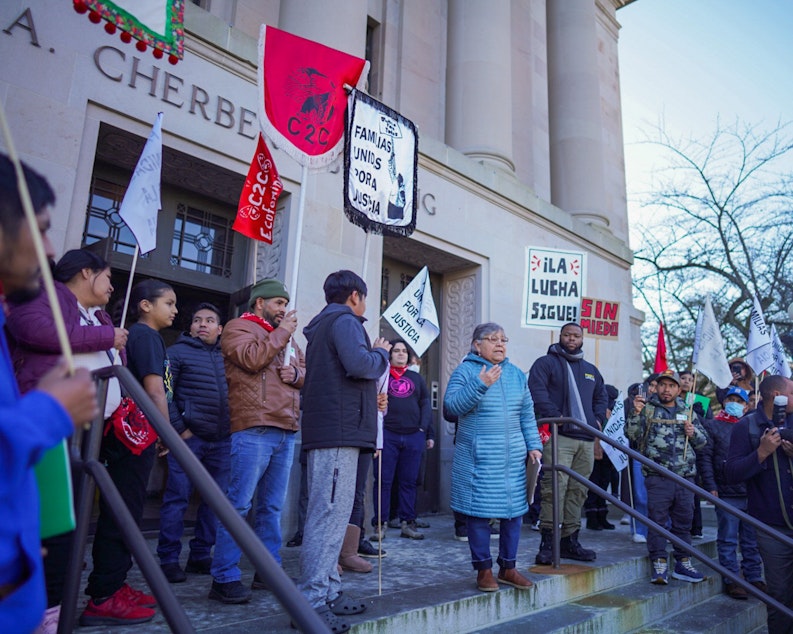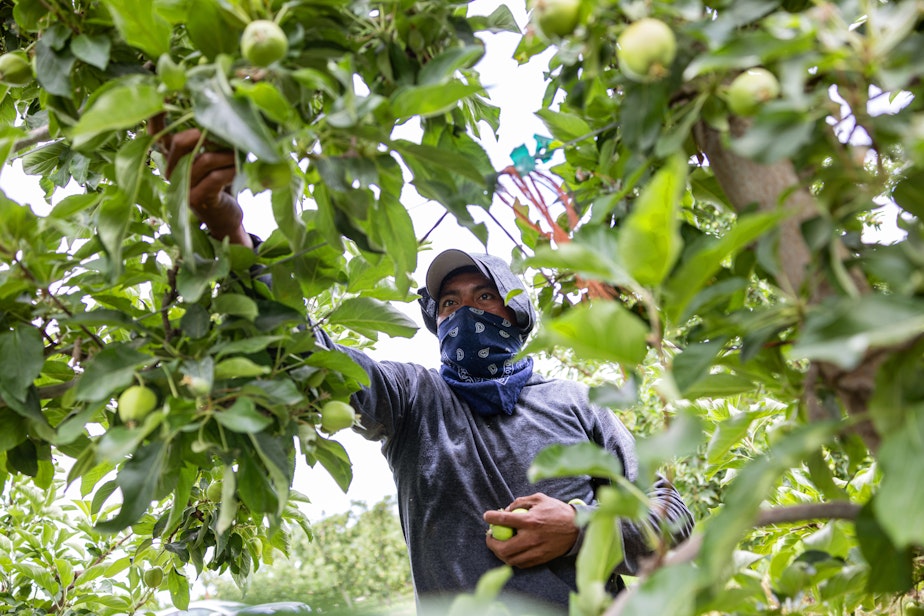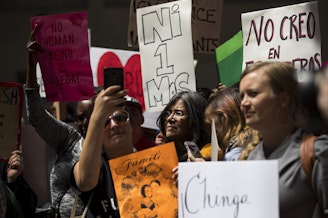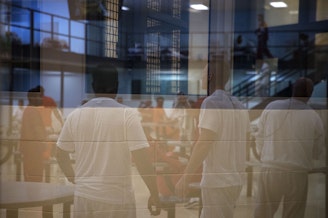Washington farmworkers call for better work conditions amid Trump deportation threats

More than 100 farmworkers and their supporters traveled to Olympia from the state’s rural counties Tuesday to lobby lawmakers for more protections against unfair labor practices.
Many of the farmworkers who arrived were from Indigenous Mixtec- and Triqui-speaking communities in Oaxaca. They lobbied lawmakers at the state Capitol accompanied by translators.
Even though President Trump’s immigration policies could target people in their communities, organizers said that won’t stop them from trying to get better working conditions. They’re calling on the state for more protections against unfair labor practices.
RELATED: Immigrants drive Nebraska's economy. Trump's mass deportations pledge is a threat
Rosalinda Guillen, is a longtime farmworker and founder of Community 2 Community, a political group focused on human rights and food justice. Now more than ever, farmworkers need the state to ensure they’re paid and treated fairly, she said.
“The governor should be here, welcoming us like we deserve, because we keep this agricultural economy in Washington State growing and becoming more powerful,” she said at the steps of the state Senate offices.
She was surrounded by banners, other advocates, and members of Familias Unidas por la Justicia, a farmworker union group.
"We are farmworkers, working the land of the state, keeping the economy strong,” Guillen said.
Last year, Washington farmworkers won a lawsuit against the U.S. Department of Labor, compelling the department to revise the wages paid to visa workers so they are more competitive to allow workers to make a better living.
If they hadn’t sued, the farmworkers allege employers would undercut their wages by bringing in more foreign visa workers.
RELATED: Washington state farmworkers sue U.S. Department of Labor over depressed wages
While that court case is settled, it isn’t the end of the fight.
A poor wage is why Gildardo Perez said he told farm owners around Quincy he left his job. He said hundreds if not thousands of local workers in the heart of Washington are also feeling squeezed.
“We’re not getting enough to sustain our families, and we try to go to other places to look and see if they’ll give us a little better,” Perez said in Spanish.

A 2021 McKinsey & Company study found that collectively Latino workers are underpaid $288 billion every year nationwide.
“My parents work year round, and have done so for 20 years,” said Orlando, who used to help his parents as a child growing up in Othello. He asked to only use his first name because he does not have legal status in the U.S.
Orlando is now a chemistry major at Western Washington University. He, along with other children of farmworkers, spoke to legislators and their aides in Olympia.
“They [Orlando’s parents] don't see the fruits of their labor and are living paycheck to paycheck," he said. "They've been working almost every day, waking up at 3 or 4 a.m. on 100-degree summers and cold winters. They couldn't save any money to help me out in school.”
RELATED: Migrants left in despair at the border as asylum system shuts down



